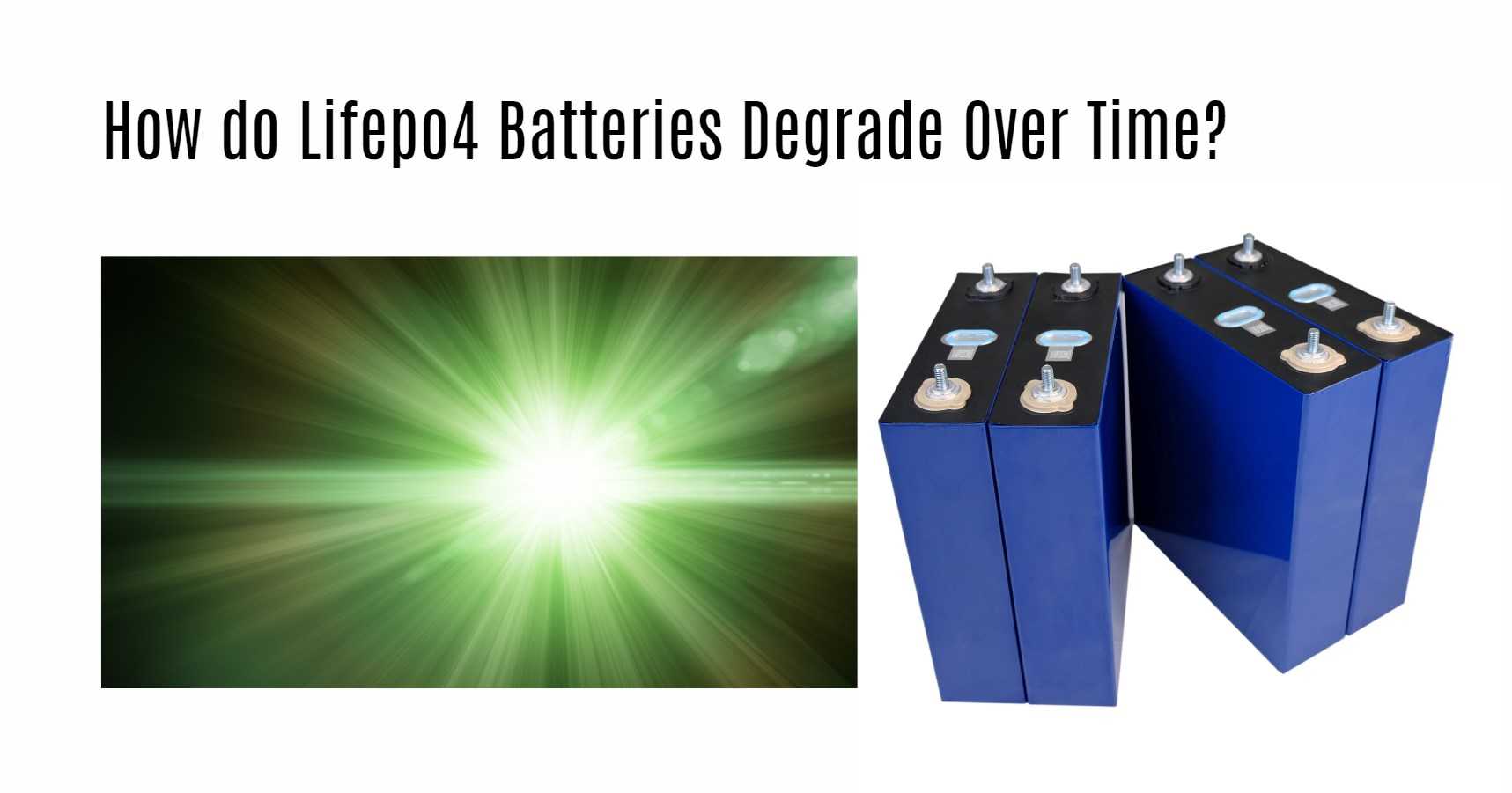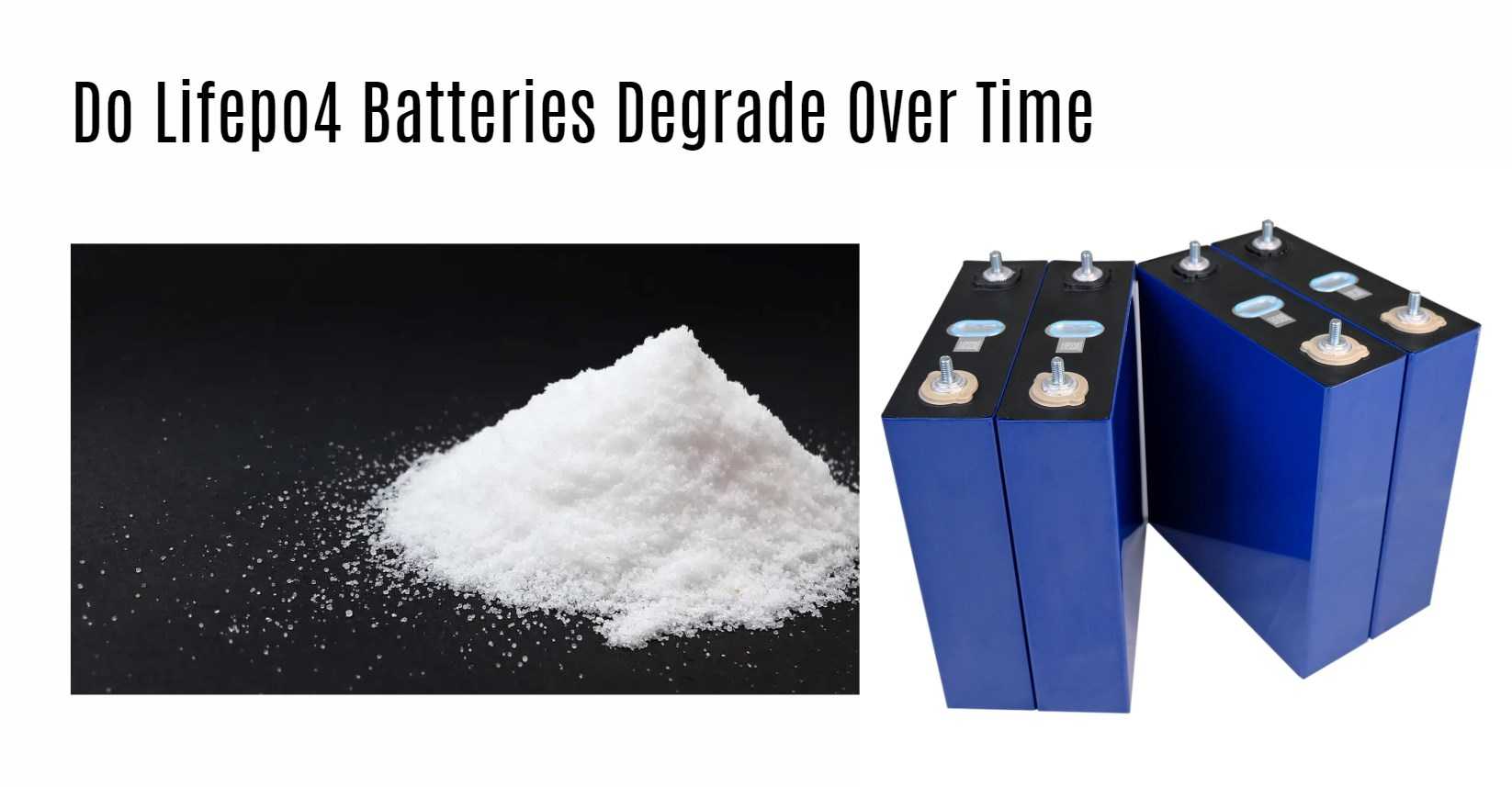Are you tired of your batteries losing their charge quickly and degrading over time? If so, then Lifepo4 batteries may be the solution you’ve been looking for. These batteries have gained popularity due to their high energy density, longer lifespan, and overall efficiency. However, with any battery comes the risk of degradation over time. In this blog post, we will explore everything there is to know about Lifepo4 battery degradation – from its causes to how it can be prevented – so that you can get the most out of your investment in these powerful batteries!
What are Lifepo4 Batteries?
Lifepo4 batteries are a type of rechargeable battery, also known as lithium iron phosphate batteries that offers several advantages over traditional battery technologies. They are widely used in backup power systems, electric vehicles, off-grid solar generators, and portable devices. Lifepo4 batteries have a long lifespan, high energy density, and are lightweight. They require low maintenance, have a low self-discharge rate, and are considered safer and more environmentally friendly. With their superior performance and reliability, Lifepo4 batteries are the go-to choice for various applications.
- Advantages of Lifepo4 Batteries: Lifepo4 batteries offer numerous advantages such as a long lifespan, high energy density, lightweight design, low maintenance, and low self-discharge rate. They are safer, more durable, and more environmentally friendly compared to other battery chemistries.
- Applications of Lifepo4 Batteries: Lifepo4 batteries are widely used in backup power systems, electric vehicles, off-grid solar generators, and portable devices. Their high energy density and reliability make them ideal for powering various appliances and devices.
- Why Lifepo4 Batteries are the Superior Choice: Lifepo4 batteries outperform traditional battery technologies with their long lifespan, high energy density, and superior performance in extreme conditions. They are lightweight, require minimal maintenance, and provide a safe and efficient power solution for a wide range of applications.
The Different Types of Lifepo4 Batteries
- Prismatic Lifepo4 Batteries:
- These batteries have a rectangular shape, making them perfect for devices with limited space.
- Advantages: space efficiency, enhanced safety, and higher energy capacity.
- Applications: portable electronic devices like smartphones, tablets, and GPS systems.
- Pouch Lifepo4 Batteries:
- These batteries are flexible and lightweight, ideal for applications where weight and size matter.
- Advantages: lightweight and compact design, flexibility in shape, and high energy density.
- Applications: laptops, cameras, wearable devices, and more.
- Cylindrical Lifepo4 Batteries:
- These batteries have a cylindrical shape and are commonly used in high-capacity devices and electric vehicles.
- Advantages: longer cycle life, enhanced safety, improved energy output, and environmental friendliness.
- Applications: power tools, electric bicycles, electric vehicles, and more.
How do Lifepo4 Batteries Degrade Over Time?
- Cyclic Aging:
- During cycling, the active materials in Lifepo4 batteries degrade.
- Reversible reactions at the cathode and lithium plating at the anode contribute to degradation.
- These processes result in a gradual loss of capacity and performance over time.
- Calendar Aging:
- Calendar aging occurs during idle intervals when the battery is not in use.
- Parasitic side reactions at the electrode-electrolyte interfaces cause degradation.
- Electrolyte reduction at the negative electrode and electrolyte oxidation at the positive electrode lead to capacity fade and reduced performance.
- Lifetime Models:
- Different models are used to study battery degradation over time.
- Pure-lifetime models count the amount of charge or energy passed through the battery.
- Physics-based models provide a mathematical representation of internal variables.
- Empirical models are parameterized based on extensive testing and curve fitting.

Wholesale lithium golf cart batteries with 10-year life? Check here.
What are the consequences of battery degradation?
Battery degradation can have a significant impact on the performance and lifespan of your Lifepo4 battery. As batteries degrade, they lose their ability to hold a charge, resulting in decreased runtime and reduced overall capacity.
One consequence of battery degradation is that it can limit the range of devices that rely on the battery. For example, if you are using an electric vehicle with a degraded Lifepo4 battery, you may not be able to travel as far per charge as when the battery was new.
Want OEM lithium forklift batteries at wholesale prices? Check here.
Another consequence is reduced efficiency. When batteries degrade, they require more energy to operate at their original level. This means that your device may need to work harder or consume more power from other sources to maintain its normal functioning.
Additionally, degraded batteries can pose safety risks due to increased heat generation during use or charging. This heat buildup may lead to damage or even failure of surrounding components if left unchecked.
Understanding the consequences associated with Lifepo4 Battery degradation is critical for maintaining optimal system performance and ensuring long-term reliability.
How to prevent battery degradation
Preventing battery degradation is critical to ensuring that your lithium iron phosphate (Lifepo4) batteries remain in good condition for an extended period. Here are some tips on how you can prevent battery degradation and prolong the life of your Lifepo4 batteries.
Firstly, it’s essential to avoid overcharging or undercharging the battery. Overcharging can cause overheating and damage to the cells, while undercharging can lead to sulfation, which reduces capacity and lifespan. To avoid this, make sure you charge your Lifepo4 battery up to its full capacity but never exceed it.
Secondly, keep your batteries at a moderate temperature range between 20-25°C as high temperatures accelerate chemical reactions inside the cells leading to faster degradation rates.
Thirdly, store batteries in a cool place with low humidity levels away from direct sunlight exposure because higher temperatures increase self-discharge rates and also affect cell performance during long-term storage periods.
Always use compatible chargers designed specifically for Lithium-ion chemistry when charging your Lithium Iron Phosphate Batteries as using unsuitable chargers will result in decreased life cycle cycles due to improper charging causing irreversible damage like formation of dendrites which shortens their overall lifespan.
Conclusion
Lifepo4 batteries are a great option for those who require high energy density and long cycle life. However, like any other battery, they degrade over time due to various factors such as temperature, depth of discharge and age. It is important to keep these factors in mind when using lifepo4 batteries.
The consequences of battery degradation can be severe and lead to loss of capacity or even failure. To prevent this from happening, it’s essential to take proper care of the batteries by avoiding extreme temperatures and not overcharging or discharging them beyond their recommended levels.
In summary, understanding how lifepo4 batteries degrade over time helps us make informed decisions about their usage. By taking necessary precautions and following best practices for storage and charging, we can extend the lifespan of our lifepo4 batteries significantly while enjoying reliable performance throughout their lifetime.
The Redway Power 48V Series LiFePO4 Battery (LFP) – Reliable Deep Cycle Performance with Long Lifespan and High/Low Temperature Tolerance” – This phrase conveys that the Redway Power 48V Series LiFePO4 Battery offers reliable and long-lasting performance with deep cycle reliability, high safety standards, and excellent temperature tolerance.







